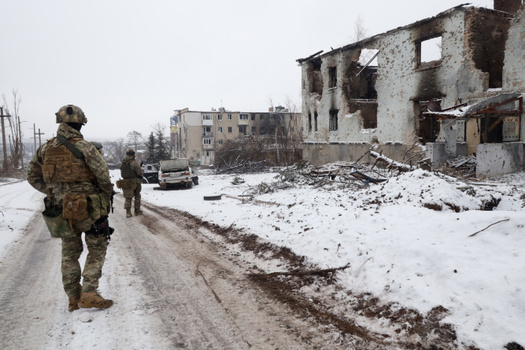
‘They’ll just wipe me out’ A former prisoner fled his Wagner unit, but now fears revenge from mercenaries
Мы рассказываем честно не только про войну. Скачайте приложение.
Since last summer, Kremlin-backed tycoon Evgeny Prigozhin has traveled around Russia’s penal colonies, recruiting inmates into the Wagner Group ranks, in exchange for pardons and cash payments. Witnesses claim, however, that the mercenary group has its own means of punishing fighters for desertion and other offenses, and that extrajudicial killings are a common practice. Mediazona spoke to a former prisoner who first signed up to go to war, and later escaped from his Wagner Group formation. Here’s his story, in brief.
Evgeny Prigozhin came to Nikolay Troshkin’s prison in the fall. Troshkin (whose name has been changed for his safety) says that, before Prigozhin’s visit, all the staff had to turn off their phones and video-recording devices. Prigozhin then explained “in great color” that inmates could go to war for six months and then receive pardons. “He’s a serious guy, and has real authority to be able to get a person out of prison. Everyone believed him. He explained everything quickly and left. I only saw him once,” Troshkin recalls. During his medical exam, he was asked only whether he had HIV or tuberculosis.
Before they left, the inmates signed pardon papers and non-disclosure agreements concerning their location. The colony administrators collected addresses to which they said they’d forward their valuables. Troshkin says his package never reached the address he gave. All in all, more than 200 inmates from his penal colony agreed to go to war.
At first, the new recruits were told they’d spend a month training in Rostov-on-Don. Instead, they were sent straight to the Luhansk region, where they were stationed in a military camp not far from the combat zone.
The unit went out immediately to the training grounds, where they gave us weapons. They gave me a black 1975 Kalashnikov without any cartridges, a bayonet, knives, and waist pouches. There were instructors there, they said: you’ll be here two weeks, then you’ll go to the second line, and then to the front line. But some guys from Chelyabinsk came through, and they said they’d been sent to fight right away, after a week. Of course we started to catch on.
According to Troshkin, the commanders were also former inmates without combat experience. The new recruits were given just over a week for shooting practice: they received some cartridges, and only had to show the instructors empty magazines. That’s when it started to dawn on Troshkin that “they simply make assault groups out of inmates, and we’re the cheapest fodder.”
But there was no way back, he recalls. “If you refused to do something,” he says, “you’d be wiped out right away.” Once, after he and a few others had got to the camp, they heard that “two guys had just been wiped out” for “stealing something” from a checkpoint.
After the week-and-a-half of training, the camp came under attack from Ukrainian troops. The Wagner fighters had been warned the day before to “keep their ears to the ground,” but the attack took the camp by surprise anyway. When the shooting started, the former prisoners didn’t even have rifle cartridges, since they only got those when training.
“A commotion started” and “everyone ran all over the place.” Troshkin and another convict ran to a nearby village. From there, they went to Luhansk on foot. Troshkin decided not to return to the camp. “I could hear shooting back at the camp, and it had been just guys with no ammunition there, all doing construction. Everyone there just got mowed down,” he says.
In Luhansk, Troshkin was caught by a military patrol, who tried to make him sign a paper saying he wanted to volunteer. There was another medical exam, but he lied that he had HIV. They let him go. He then walked to Donetsk, where he took a bus to Moscow, and then hitchhiked the rest of the way home. (Mediazona did not specify where he is from, but it’s likely to be Siberia.) At first, he thought of returning to prison and serving the remainder of his sentence, but then he learned from acquaintances that his criminal record had already been expunged. Now, he fears retribution from Wagner Group and thinks he’ll “have to hide and change his phone number.”
“There’s no sense in dealing with Wagner — they’ll just wipe me out. They take thousands of people from prisons, talking about how great it will be, how you’ll go back home, but 90 percent of them are killed. I saw on YouTube how many people returned home, finished their contract — it’s a very small portion of those who’d gone to the front,” the former inmate says.